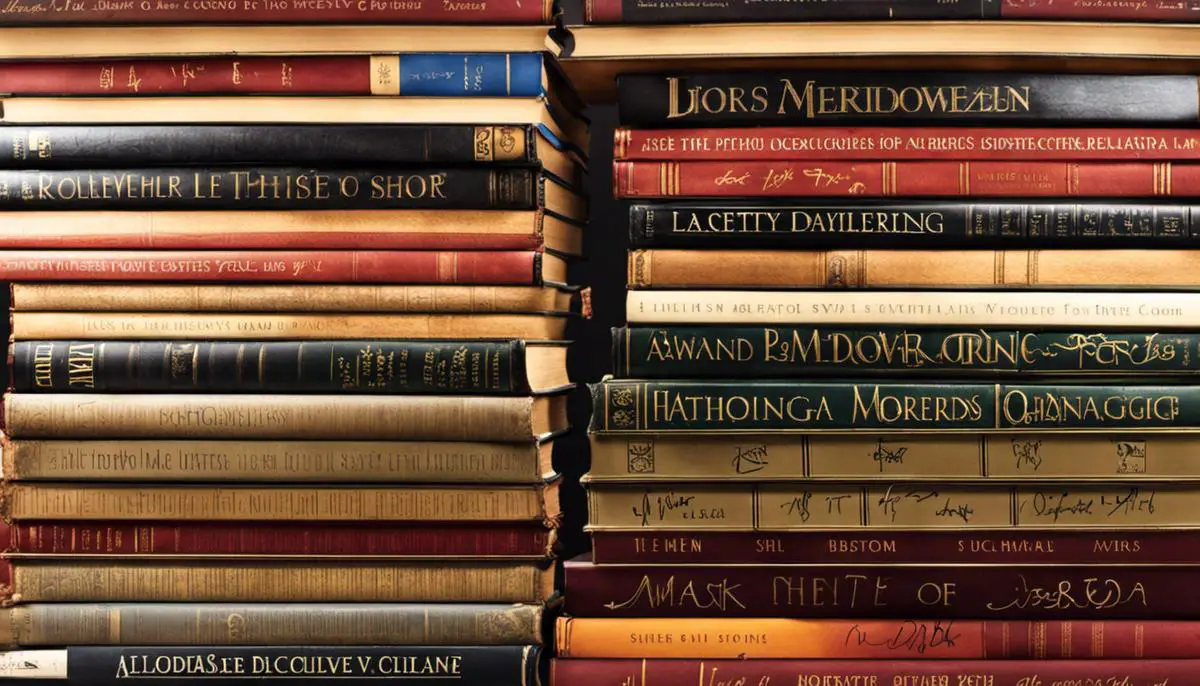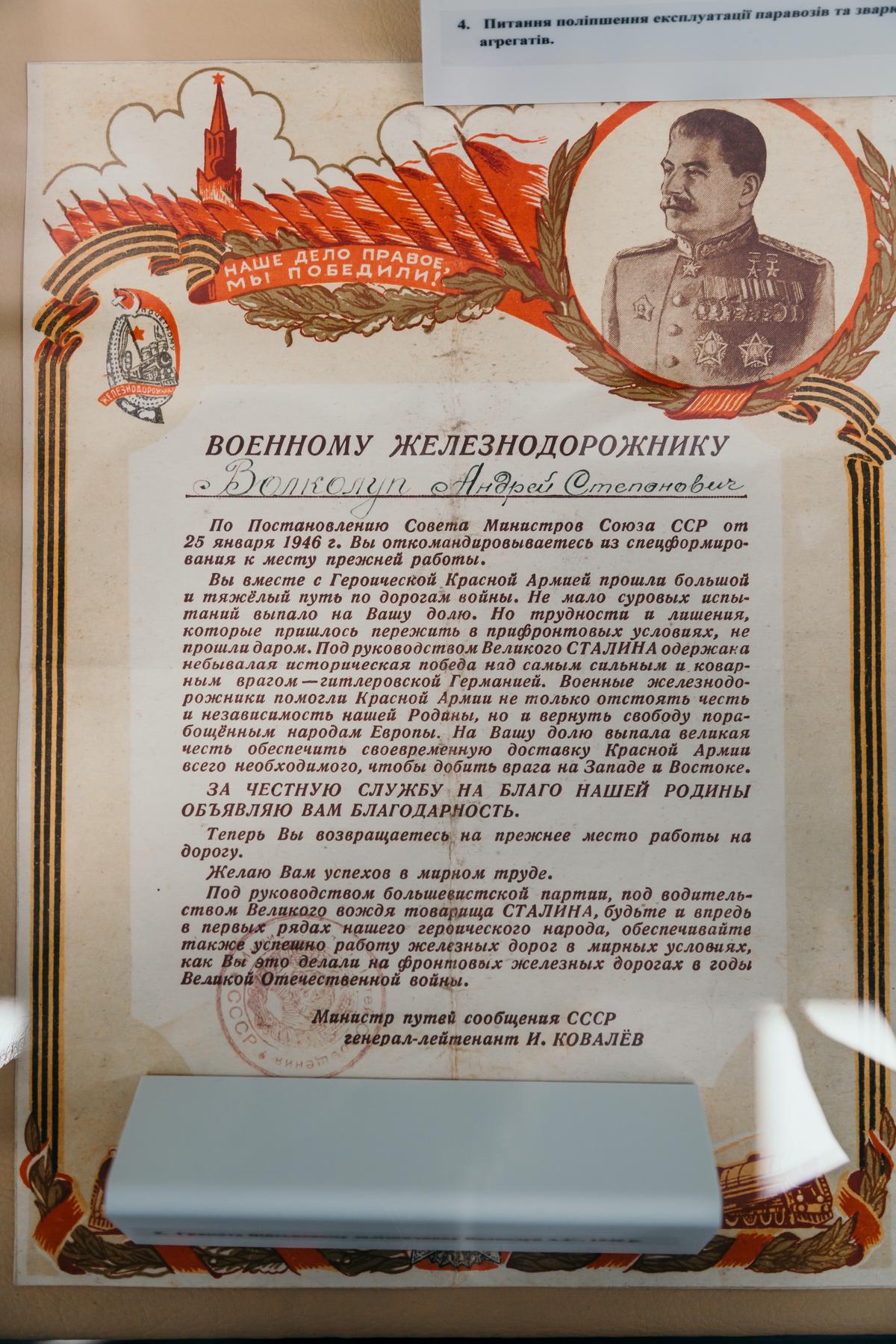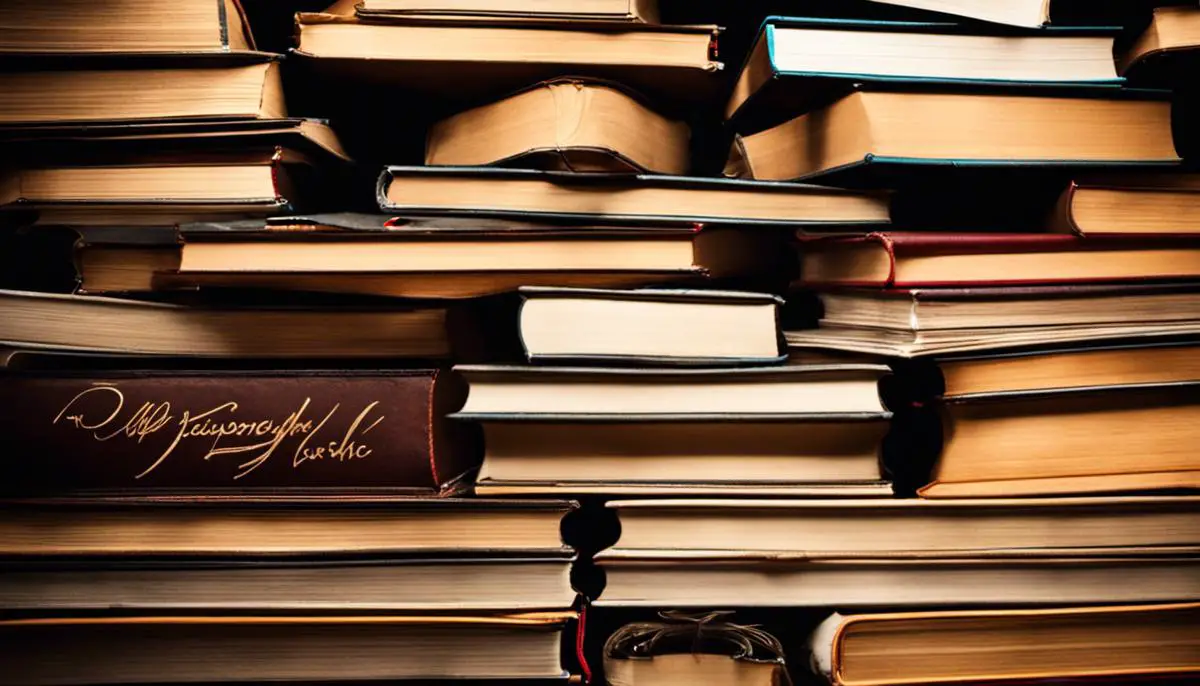Autographed books, often seen as treasures of literary value, hold a unique charm for book aficionados and collectors alike. Behind the ink that marks the page lies an intrinsic value, offering a tangible connection between reader and author, bestowing the book with an added layer of significance. Alongside the sentimental value, autographed books can also serve as potential financial investments. This segment delves into understanding the worth of signed books based on various factors–from the stature of the author and the rarity of the signature, to the condition of the book itself. It doesn’t stop there, we also explore the fundamental process of authentication, the players and standards involved, and why it’s so vital. The discussion extends to potential risks and rewards of investing in signed books, market trends, and the impact of various circumstances and events. Lastly, it serves as a guide to navigate the marketplace of buying and selling autographed books, equipping readers with essential knowledge to strike fair deals and avoid common pitfalls.
Understanding the Value of Autographed Books

Understanding the Value of Autographed Books
Autographed books typically hold a higher value compared to their unsigned counterparts. The increase can sometimes be minimal, but in cases where the author’s signature is sought after or rare, the increase in value can be substantial. Autographs of authors who have passed away or have achieved a considerable stature in the literary world are generally more valuable.
Factors Affecting the Value of Autographed Books
Several factors influence the value of autographed books. The condition of the book plays a significant role in determining its worth. Books that are in excellent condition with clear and legible autographs are usually more valuable. Conversely, books with missing pages, rips, or scribbles will have diminished value, even if they bear the signature of a famous author.
In addition to physical condition, the status of the signing author, as aforementioned, greatly contributes to the value of autographed books. Traditionally, volumes autographed by well-respected, influential, or popular authors tend to garner the most attention and highest prices on the collector’s market. The rareness of the author’s signature also plays a key role – the harder it is to find an author’s signature, the more valuable the signed book is likely to be.
Relevance of Inscription and Its Effect on Value
Interestingly, the context and content of the inscription can also affect value. A generic “best wishes” or a simple author signature may not increase value as much as a personalized message. However, books inscribed to unknown or unrelated individuals may not be as valuable as those inscribed to famous personalities, friends, or relatives of the author. Moreover, a book containing an inscription that sheds light on the author’s life, the background of the work, or an important event may be particularly desirable to collectors.
Comparison with Unsigned Counterparts
As a comparison, unsigned copies of books, even first editions or rare prints, may not fetch as high a price as those that have been signed. The monetary value an autograph adds to a book depends on the factors discussed above but, regardless, the presence of an autograph almost always adds a layer of desirability. This is primarily due to the personal touch an author’s signature gives, making the item unique and a direct connect with the mind behind the work.
Understanding the Unpredictability of Autographed Book Collecting
For prospective collectors, it is imperative to keep in mind the volatility of the market for autographed books. The popularity of specific authors or books can suddenly rise due to circumstances such as the author’s passing, receiving notable accolades, or the adaptation of their work into a successful film. These events may result in price fluctuation. However, not only can the collection of autographed books be profitable, it is also important to appreciate their intrinsic historical and literary value.

The Process of Authentication
Importance of Authentication in Autographed Book Collecting
Authentication plays a vital role in the field of autographed book collecting. The process encompasses several steps designed to affirm whether an autograph within a book is genuinely by the indicated person of significance and not a counterfeit or replication. This procedure is of utmost importance in preserving the integrity of the autographed books’ market.
Expert Opinion: An Experienced Eye
One popular method for authenticating autographed books is to use expert opinion. These experts are well-versed in the intricacies of handwriting and the nuances of specific individual’s autographs, such as renowned authors, celebrities, or historical figures. They bring this knowledge to bear by thoroughly examining the autograph in question to ascertain its authenticity.
Comparison to Known Examples: Cross-Reference and Contrast
Another prevalent method for autograph verification is to compare the mark with known examples of the autograph. This includes comparing signatures from other comparable sources, time periods, or on comparable books. The goal of the method is to detect recurrent stylistic patterns, unique quirks, or distinctive characteristics of the handwriting that match the autograph in the book in question.
Scientific Methods: Unearthing the Truth with Ink Analysis
In addition to these comparison techniques, scientific methods like ink analysis are also employed. In essence, ink analysis involves investigating the ink used for the autograph to see if it matches the era of the autograph. For instance, certain types of ink were only manufactured and used during specific periods, helping to restrict the timeframe of an autograph.
Importance of a Certificate of Authenticity
Now let’s delve into the importance of a certificate of authenticity. This certificate serves as a form of third-party authentication – an impartial and professional declaration that an autograph is genuine. This certificate greatly enhances the perceived credibility and by extension, the monetary value of the autograph. By guaranteeing authenticity, it offers peace of mind to both buyers and sellers in the autographed book market.
Securing a Certificate of Authenticity
To authenticate an autograph, it’s vital to submit it to a respected authority in autograph authentication. Such an authority scrutinizes the signature with expert judgment, reference to known examples, and scientific analysis when necessary. An authentic autograph, backed by a certificate, assures its authenticity and subsequently elevates its value.

Photo by marjan_blan on Unsplash
Investing in Autographed Books
The Collectibles Market’s Appreciation for Autographed Books
Autographed books represent a rare blend of literary and autograph collecting, which can potentially drive their value. The allure of signed books, derived from their personal and historical significance, often makes them more attractive to collectors, thus increasing their market worth. However, the ultimate value relies on factors such as the author’s fame, the book’s literary importance, and the rarity of autographed versions.
Impact of Author’s Death on the Value of Autographed Books
An author’s death can greatly influence the value of their autographed books. As the finite supply of an author’s autograph becomes dramatically apparent after their passing, demand often increases, leading to a corresponding surge in prices. However, not all authors’ signatures become highly sought after following their death. Factors such as the writer’s prominence, reputation, and contribution to literature play crucial roles to determine the value in the long-term investment perspective.
The Influence of Literary Awards on the Value of Autographed Books
Winning prestigious literary awards can significantly enhance the appeal of both the author and their work. Highly recognized awards like the Man Booker Prize, Pulitzer, or Nobel can catapult an author into fame overnight which naturally enhances the interest in their signed books. This increase in demand can lead to an uptick in prices. However, there is no guarantee that the hype surrounding a book due to an award win will last indefinitely, making it a potentially uncertain investment.
Investing Risks with Autographed Books
While autographed books can be valuable investments, they also carry risks. The market’s fluctuating nature dictates that the value of such books may go up or down depending on various factors. For instance, an author who falls out of favor due to controversies can severely affect the value of their autographed books. Another potential risk resides in the authenticity of the autograph. Forgeries are prevalent in the market, so verifying the signature’s authenticity is of utmost importance.
Firsthand Accounts from Notable Collectors and Experts in the Field
Prominent collectors and experts have their stories to tell when it comes to investing in autographed books. They emphasize the balance between passion for the literary work, respect for the author, and astute understanding of market value. Their experiences suggest that genuine love for the art of collecting, combined with careful research and assessment, can lead to successful investment in this market.
The Market Trends for Autographed Books
The market for autographed books has been relatively stable, showing growth potential over the years. High-profile auctions occasionally reveal exceptional sales figures for autographed items, sparking interest among potential investors. While there is a steady market for the books of best-selling and award-winning authors, there’s also a niche market for more obscure writers, particularly if their signed work is rare.
In Conclusion
For book lovers and collectors, investing in autographed books can be an exciting venture. Nevertheless, it’s essential to balance this passion with a sensible, pragmatic approach. The value of signed books is influenced by various factors such as the reputation of the author, the significance of their work in the literary world, rarity of the autographed edition, the impact of any literary awards received, the passing of the author, and current market trends, among other things. This means going into the business of autographed book collection requires thorough research, patience, and occasionally, a dash of good fortune.

Buying and Selling Autographed Books
Finding and Trading Autographed Books
There are numerous platforms where you can buy or sell autographed books. Traditional bookshops, particularly those that stock a range of rare and collectible books, are often home to these signed treasures. Auction houses, both the conventional type and those online, are also popular marketplaces for signed books. Trusted online platforms like eBay, Abebooks, and Heritage Auctions offer a vast array of autographed books. Furthermore, you might sometimes find signed books at book fairs and other special literary events.
Ensuring a Fair Deal
When buying autographed books, it is imperative to ensure you are getting a fair deal. You can do this by researching the average selling price of similar books. Check the sales records of other autographed copies of the same book, with special attention to the condition of the book and the authenticity of the signature. Using a reputable source or dealer can also ensure you are dealing with a fair and knowledgeable party. Lastly, don’t be afraid to negotiate the price.
Avoiding Scams
Unfortunately, the market for autographed books is ripe for scams. Forged signatures are a common problem. To avoid such scams, always request authentication documents, particularly when buying online or from a party you’re not familiar with. Dealing with established and reputable dealers who have a long history of selling autographed books can also help guard against scams.
Importance of Preservation
Preservation plays a key role in maintaining the value of autographed books. Acid-free materials should be used for storage, as these will not damage the book or the signature over time. The book should also be kept away from direct sunlight and high humidity, as these can deteriorate the book’s condition. Regular dusting can also protect the book from the accumulation of particulates, which might affect the visibility of the signature or the state of the book’s pages.
Maintaining the Condition of Signed Books
Autographed books are more sensitive to wear and tear than regular ones. Regular dusting, avoiding direct sunlight, and controlling the room temperature and humidity can be helpful measures. Using gloves while handling the book can prevent the skin oil from damaging the book’s pages and the signature.
Impact of the Book Condition on Its Value
The condition of an autographed book greatly impacts its value. Generally, books in mint or near-mint condition fetch a higher price than those in poor condition. The visibility of the signature, the state of the book’s pages, and the presence of any damage all factor into the book’s final valuation.
In the game of buying and selling autographed books, knowledge is truly power.
By understanding where to buy and sell, how to ensure a fair deal, common scams to avoid, and the importance of preservation and condition, you will be better equipped to embark on the journey of collecting autographed books.

Whether you’re a passionate reader, a collector, or someone with an eye for investment opportunities, the world of autographed books offers endless possibilities. While the charm of a signed book lies in its unique connection with the author, its financial value remains subject to numerous factors ranging from author fame to book condition. Authentication is a key step in establishing the worth of autographed books. Hence, it’s important to understand the procedures and tools used in this intricate process. While investing in autographed books can yield significant returns, it’s crucial to learn about the market trends, influences, and potential risks involved. The buying and selling of these literary gems involve not only navigating the marketplace but also understanding the preservation and maintenance of these assets. The journey with autographed books is one of learning, discovery, and often, remarkable returns–not just financial, but emotional as well.

